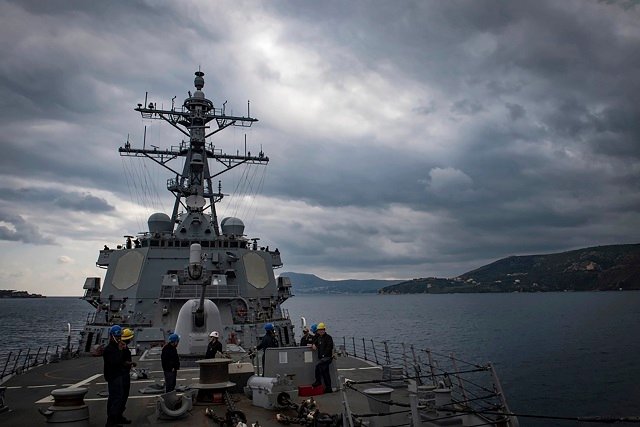
The Houthis’ Attacks on Red Sea Shipping
The Red Sea crisis has taken a dangerous turn as the Houthis, based in Yemen, continue to escalate their attacks on ships passing through this vital trade route. These attacks, which they claim are in solidarity with the people of Gaza, have targeted not only vessels related to the conflict but also unrelated cargo ships. One recent incident involved a cargo ship named “Me Hangu,” registered to Singapore and operated by The Dana Shipping giant MK. Although this ship had no ties to Israel, it became a target of the Houthis. On Saturday, the ship was hit by a missile fired from the Yemeni mainland, causing minimal damage and no casualties. Despite the attack, the ship managed to continue its journey along the Red Sea. However, the danger was not over. On Saturday night, two more missiles were fired at the same cargo ship. Fortunately, these missiles were intercepted by the United States, which promptly responded to the ship’s distress call. The USS Dwight D Eisenhower aircraft carrier, accompanied by a fleet of destroyers and carriers, rushed to rescue the cargo ship. American helicopters were deployed to protect the ship and intercept the Houthi missiles.
Houthi Resistance and Iranian Involvement
Although the missiles aimed at the cargo ship were intercepted, the USS Dwight D Eisenhower aircraft carrier came under attack from Houthi militants on small boats. Four Houthi boats attempted to intercept and board the merchant ship but were ill-prepared to face the firepower of the American forces. The Houthis, armed with small arms, fired upon the American helicopters, prompting the US to retaliate. This clash resulted in the loss of 10 members of the Yemeni naval forces, with three Houthi boats destroyed and one managing to escape. The Houthis have vowed to respond to this incident, and the United States faces potential repercussions. Furthermore, Iran’s involvement in the Red Sea adds to the complexity of the situation. Iran has sent an old but modernized frigate called the “Albor” to the region. Although it may not match the capabilities of the USS Dwight D Eisenhower aircraft carrier and its fleet, the presence of the Albor could complicate efforts to secure this vital shipping lane.
Challenges for Shipping Companies and International Efforts
The escalating tensions and security challenges in the Red Sea have left shipping companies concerned about the safety of their vessels. For example, Mask, a shipping company that had recently resumed shipping through the Red Sea, has decided to stop using this route once again. It requires greater security and safety guarantees to ensure the protection of its cargo. In response, the United States has organized a coalition called “Operation Prosperity Guardian” to protect the region. This coalition comprises approximately 20 countries, although half of them have chosen not to disclose their participation publicly. This lack of transparency further complicates the situation. Iran’s entry into the Red Sea has heightened tensions, turning the already volatile area into a powder keg. Recognizing the importance of maintaining stability and an open trade route in the Red Sea, India has also increased its naval patrols in the Arabian Sea. With four destroyers and a frigate, India aims to gather intelligence and provide assistance to merchant vessels. However, India’s approach focuses on avoiding confrontation and ensuring the safety of all parties involved.
Conclusion
The Red Sea crisis continues to escalate, posing significant security challenges for shipping companies and international efforts to maintain stability in the region. The Houthis’ attacks on vessels passing through this trade route, including the recent targeting of a cargo ship unrelated to the conflict, have prompted the United States to respond and form a coalition. Iran’s involvement further complicates the situation, making it imperative for countries like India to increase their naval patrols to ensure the safety of merchant vessels. The coming days will determine the effectiveness of these efforts and the ability to resolve the Red Sea crisis without further harm to global trade and security.